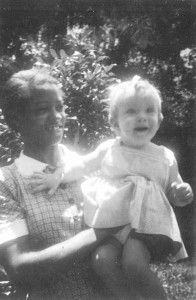In the Light of Memoirs
Genealogists find adventure, mystery, nostalgia, and exciting revelations in their pursuits. Researching family history is fascinating detective work.
And it has other surprising benefits. After writing Into the Briar Patch, I'm continuing to discover how much light the past sheds upon the present.
My South Carolina ancestors, who owned slaves, formed perceptions about race from their experiences. Their views drifted down the family tree, sometimes altered and sometimes not.
My research has taught me much about the origins of degrading stereotypes of black people. The causes often lie in the psychological makeup of empowered whites, prevailed upon by history. When I witness these same negative black stereotypes repeated today, I can neutralize them more easily (for myself and others) by seeing them in the light of my memoir. This further understanding helps to soften frustration and suspicion that racisms will never be healed.
Current events are often racially charged these days, although we may wish for a post-racial society. The ideas that I forged in my memoir research have become a new lens for me as I watch or read the news.
One harmful long-term stereotype is that "black people lie."
Who can forget GOP Rep. Joe Wilson of South Carolina yelling "You lie!" to President Obama during his 2009 health care speech to Congress? (Later, fact-checkers verified Obama's statements.) Has anyone ever shouted this to a white President during a formal address?
Yesterday, a new Department of Education study demonstrated that blacks in public schools are three times more likely to be suspended and expelled than whites. It's easy to guess whose protestations of innocence are more likely to be believed.
The "black people lie" stereotype was born in slavery days—from causes that were structural, not racial or moral. African-Americans sold into chattel slavery could not rely on truth. In fact, their emotional truth could be fatal to them. To survive, they had to swear love for their master's family, an unflagging zest for hard labor, and agreement with most white people's words and deeds. Where was the truth in that?
White owners and their families were weighed upon by anxiety and heavy guilt—partly conscious and partly not conscious—because of their unnatural position of "owning" other people. They were hardly equipped to face the truth. They must have suspected the compliments of slaves were untrue, yet they wanted them to be true. No doubt they wished the slaves could forgive the whites for enslaving them, and allay their guilt. Both blacks and whites could idealize the master-slave relationship, or they could alternate between idealized and disappointed states.
In this labyrinthine situation, the easiest solution for whites was to characterize black people as habitual "liars." The other choice, the unbearable choice, was to publicly call out slavery as an immoral and criminal institution that could not tolerate the light of truth. Individual white Southerners rarely felt they could survive the latter choice.
Of course, the "black people lie" stereotype lingered throughout Jim Crow, known as "slavery without the chains," and the pre-civil-rights era. Many people seeing The Help have shared the black maids' opinion that lying was necessary to survival. Today, black people may still believe that whites cannot withstand the unvarnished truth about relationships between the two races.
In Utopia, Thomas More criticizes his own government for its laws that oppress the poor: "You first make thieves and then punish them for stealing." In a similar way, today's "black people lie" stereotype is a fabricated scapegoat to cover a truth that many whites still cannot bring themselves to admit without evasion or excuses. Plainly stated, it is this: Chattel slavery, which our nation insisted upon preserving for decades, wrought devastating and ongoing destruction upon African-Americans.
When I was an infant, my mother hired a black nurse to help care for me. In Mother's letters from 1943, she vacillates between idealizing the devotion of Roselle, "a black pearl," and suspecting that Roselle lacks honest enthusiasm. Later I learned that Roselle had left her own five-week-old infant with relatives in another town, in order to live at our house and care for me. The letters do not mention this truth.
Roselle and Mariann in 1943




